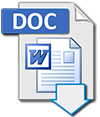Evaluasi Praktik Pengalaman Lapangan Terhadap Dampak Penyelesaian Skripsi Mahasiswa IAIN Curup
DOI:
https://doi.org/10.29240/jsmp.v4i2.1226Keywords:
Policy, Evaluation, Competence, Field Experience PracticeAbstract
The research is behind the issue of policy change implementation of field experience practice of faculty Tarbiyah from 2 months to 4 months with the reason first, the student is less gaining knowledge and experience, secondly, the time of doing PPL on In January to March to coincide with the national exam, third, relating to the allocation of honors for teacher teachers that were calculated according to the number of students he was tutored, and fourth, with the change of the policy of PPL 4 months that effect on Completion of student thesis. The purpose of the research is to know the perception of the stake holder against PPL IAIN Curup and to know a formulation of PPL majors Tarbiyah IAIN Curup. The research method used is qualitative research using an analysis-descriptive approach. This study saw the implementation of PPL faculty Tarbiyah because the policy changes from 2 months to 4 months. The results showed the school's perception of PPL for paedagogic competence is still lacking, especially in classroom management, RPP manufacturing, and the development of learning evaluation tools. For personal competence is still low on student discipline and managing emotions, while for social competence most students impress their exclusive neighbors.
Downloads
References
Asfandiyar, A. Y. (2009). Kenapa Guru Harus Kreatif. Jakarta: Mizan Media Utama.
Aunurrahman, D., & Pd, M. (2009). Belajar dan pembelajaran. Bandung: Alfabeta.
Chori, S. (1995). Ortopedagogik Anak Tunadaksa. Jakarta: Departemen Pendidikan dan Kebudayaan.
Dimyati, M. (2006). Belajar dan pembelajaran. Jakarta: Rineka Cipta.
Djunaidi, H. (2001). Reformasi Pendidikan dalam Konteks OtonomiDaerah.
Fathurrochman, I., Hariani, D., Hamengkubuwono, H., Arsil, A., Muhammad, A., & Ristianti, D. H. (2020). The Development of Student Academic Administration Services in Higher Education. International Journal of Psychosocial Rehabilitation, 24(8), 4764-4771.
Fathurrochman, I., Ristianti, D. H., & bin Mohamed Arif, M. A. S. (2019). Revitalization of Islamic Boarding School Management to Foster the Spirit of Islamic Moderation in Indonesia. Jurnal Pendidikan Islam, 8(2), 239-259.
Hamalik, O. (1994). Pengembangan Kurikulum dan Pembelajaran. Dasar dan Strategi Pelaksanaannya di Perguruan Tinggi (Jakarta: Triganda Karya.
Hashona, A. H. (2016). Kajian pelaksanaan praktik pengalaman lapangan (PPL) mahasiswa fakultas ilmu tarbiyah dan keguruan IAIN Walisongo Semarang. Cendekia: Jurnal Kependidikan Dan Kemasyarakatan, 12(2), 333-352.
Hawi, A. (2013). Kompetensi guru PAI. Jakarta: Rajawali Pers.
Krippendorff, K. (1991). Content Analysis: Introduction Its Theory and Methodologyâ€, Alih Bahasa Farid Wajidi. Analisis Isi: Pengantar Teori dan Metodologi.
Muhadjir, N. (2016). Metodelogi penelitian. Yogyakarta: Rake Sarasin.
Mulkhan, A. M. (1993). Paradigma intelektual Muslim: pengantar filsafat pendidikan Islam dan dakwah. Sipress.
Nasbi, I. (2017). Manajemen kurikulum: Sebuah kajian teoritis. Idaarah: Jurnal Manajemen Pendidikan, 1(2).
Nashori, F. N. (2003). Potensi-potensi manusia. Pustaka Pelajar.
Nasution, S. (1993). Pengembangan kurikulum. Bandung: PT. Citra Aditya Bakti.
Patton, M. Q. (1980). Qualitative evaluation methods.
Putraa, S. A., Soesatyob, Y., AKc, M., & Tunik, L. Asking Local Government to Commit to Implementing Inclusive Schools: Its Policy and Practice.
Qomario, Q., Kurniasih, S., & Anggraini, H. (2018). Studi Analisis Latar Belakang Pendidikan, Sertifikasi Guru Dan Usia Guru Paud Di Kota Bandar Lampung Berdasarkan Hasil Nilai Uji Kompetensi Guru (UKG). Jurnal Caksana: Pendidikan Anak Usia Dini, 1(02).
Rahayu, M. (2015). Pelaksanaan standar pengelolaan pendidikan di sekolah dasar kecamatan Ngemplak, Sleman. Jurnal Penelitian Ilmu Pendidikan, 8(1).
Ristianti, D. H., & Fathurrochman, I. (2020). Penilaian Konseling Kelompok. Deepublish.
Roger, E. M. (1983). Diffusion of innovation Society.
Sagala, S. (2009). Kemampuan Profesional Guru dan Tenaga Kependidikan: Pemberdayaan guru, tenaga kependidikan, dan masyarakat dalam manajemen sekolah. Alfabeta.
Suharsimi, A. (2010). Prosedur penelitian: suatu pendekatan praktik (edisi revisi). Jakarta: Rineka Cipta, 1.
Sulfemi, W. B. (2019). Manajemen Kurikulum di Sekolah.
Sutarto, S., Sari, D. P., & Fathurrochman, I. (2020). Teacher strategies in online learning to increase students’ interest in learning during COVID-19 pandemic. Jurnal Konseling dan Pendidikan, 8(3).
Sutopo, H. B. (2002). Metodologi penelitian kualitatif.
Zohar, D., Marshall, I., & Astuti, R. (2001). SQ: Memanfaatkan kecerdasan spiritual dalam berpikir integralistik dan holistik untuk memaknai kehidupan. Mizan.


















